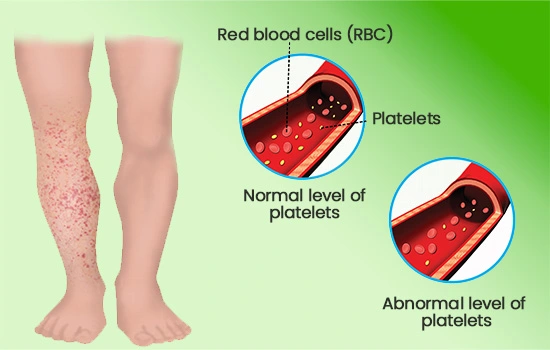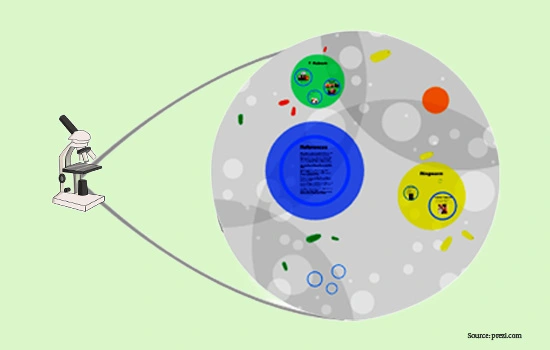PDSA coordinates an annual ITP conference in the USA. At this conference medical advisors and other professionals meet and discuss many perspectives about ITP, things from how dietary supplements or COVID-19 might affect patients with ITP, to recent developments in testing and research. Patients are given the opportunity to share their stories and interact with medical professionals.

ITP Disorder
Immune Thrombocytopenia
Understanding Immune Thrombocytopenia(ITP)
ITP or Immune thrombocytopenic purpura (formerly called idiopathic thrombocytopenia purpura) is a rare autoimmune disorder in which a person’s blood doesn’t clot properly due to a drop in platelets. There are about 30,000 new cases of ITP globally each year. It is more common in children than adults, but within adults it mostly affects women under 40 years of age when first diagnosed. It is not contagious. Symptoms may include easy or excessive bruising, small purple spots on the skin called petechiae, and bleeding from the gums or nose. Rarely, ITP can cause bleeding on the brain which can be fatal.
With ITP the immune system mistakenly coats platelets with antibodies, and so when the spleen does its normal job of killing the antibodies, it inadvertently kills the platelets, which are needed for the blood to clot. In some cases there is no known cause, in others it can be triggered by an infection or the flu, or a reaction to a medication or chemical. In some cases a person has ITP once and it never recurs, this is called Acute ITP. In other cases ITP can recur multiple times over a span of months to years, this is called chronic ITP.

What is ITP?
Immune thrombocytopenia(ITP) is disorder in which the body experiences a drop in platelets (the cells that help blood to clot), sometimes for no known reason. Inability to clot makes living with ITP risky as bumps and falls can lead to internal bleeding.
Know More
Acute Thrombocytopenic Purpura
Acute ITP is the most common form of the disorder. It typically has a sudden onset, goes away within about 6 months, and does not recur. Acute ITP is most common in young children ages 2 to 6. It may start with a viral infection such as chickenpox. In some cases, no medication is required.
Chronic Thrombocytopenic Purpura
Chronic ITP can happen at any age and the symptoms can recur over a span of months to years. Chronic ITP is seen mostly in adults, particularly women, and typically does not affect adolescents. Because it can recur, it requires continued medical care with the support of a hematologist.

Is there Support for ITP?
Organized Events

Consider Donating to PDSA
The Platelet Disorder Support Association (PDSA) is a 501(c)3 charitable organization in the USA, founded in the late 1990s by an ITP patient, with a purpose of improving the lives of those dealing with ITP. They fund education, awareness, research and advocacy, and they sponsor an annual national conference and regional support group meetings. Your donation will make an impact on the lives of ITP patients and their loved ones.
For ITP support outside the USA, click here
Donate NowIn the case of our Son, ITP was a symptom of other issues which are described in the below sections

What is an Autoimmune Disease?
Autoimmune diseases occur when the immune system fails to distinguish between healthy tissues and harmful antigens. It releases autoantibodies that end up mistakenly attacking healthy body cells, tissues or organs. There are more than 80 types of autoimmune diseases. Some are well known including lupus and multiple sclerosis, while others, including ALPS are rare.
Know More
What is ALPS?
Autoimmune lymphoproliferative syndrome(ALPS) is an extremely rare autoimmune disorder in which a genetic mutation prevents the body from controlling the number of immune system cells called lymphocytes. Accumulation of excess lymphocytes enlarges the spleen, liver, and lymph nodes among other organs. ALPS can lead to ITP and some forms of cancer.
Know More
What is Autism?
Autism Spectrum Disorder(ASD) is a developmental disorder that impairs a person’s ability to interact and communicate. It impacts the neurological system affecting general cognitive, emotional, social and physical health. The range and severity of symptoms can vary widely, so the disorder is referred to as Autism Spectrum Disorder.
Know MoreWho is Devin?
Devin was a wonderful, genuine human being. He enjoyed many aspects of life and judged no one. His favorite pass-times were playing video games, playing board games, researching on the computer, watching comedy movies and swinging. He also loved to travel.
Devin had high-functioning Autism which made it very difficult for him to make friends and ultimately led to serious depression. The Autism also made him a rule follower which led to him dealing with OCD. Devin also struggled with ALPS and ITP. These disorders caused weight gain and other physical challenges, and ultimately took his life. Read More

We wrote a book about his life and how we dealt with these disorders – if you would like to know more, click the link below to purchase a copy – all proceeds go to platelet disorder research.

